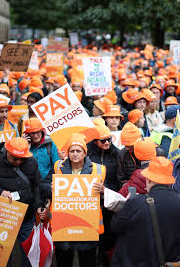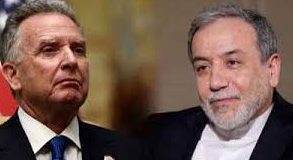Simultaneous action by nurses and junior doctors could compromise patient safety, warns NHS Confederation chief.
The NHS faces potential disruption if junior doctors and nurses coordinate strikes, with a health leader warning that such action could make maintaining patient safety “incredibly difficult.”
Matthew Taylor, chief executive of the NHS Confederation, told MPs that simultaneous walkouts by the Royal College of Nursing (RCN) and British Medical Association (BMA) would leave the health service struggling to uphold patient care. While no joint strike is currently planned, the warning follows ongoing disputes over pay.
Sir Julian Hartley, chief executive of NHS Providers, echoed these concerns, noting that co-ordinated strikes would significantly limit the options available to NHS managers for mitigating disruption. Despite these challenges, Hartley stated that there is no evidence linking past strikes to patient deaths, though delays in care during industrial action carry inherent risks.
The RCN recently announced plans to ballot members for a further six months of industrial action after rejecting a government pay offer. Voting will take place between 23 May and 23 June, with at least 50% turnout required to authorise strikes. Meanwhile, the BMA’s junior doctors, whose mandate extends until August, have staged two strikes involving approximately 47,000 members.
RCN General Secretary Pat Cullen reiterated that the union has “no plans in place” to coordinate strikes with the BMA. However, Dr Arjan Singh, from the BMA’s junior doctors committee, has refused to rule out the possibility, stating that “all options are on the table.”
Cullen urged the government to improve its pay offer, emphasising the importance of resolving the dispute to prevent further industrial action. She expressed hope for a resolution, stating: “If we get a resolution to the current dispute, our nurses wouldn’t have to take to the picket lines again.”
While the BMA’s representatives described recent negotiations with Health Secretary Steve Barclay as “painfully slow,” they noted progress and expressed cautious optimism about the ongoing talks.








